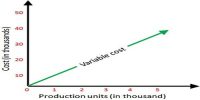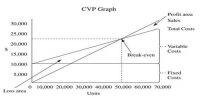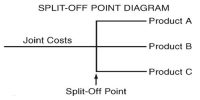The relevant cost in decision: Making business decision requires managers to compare two or more alternative courses of action. Accountants should use two criteria to determine if the information is relevant. It is a cost that only relates to a particular management decision, and which will modify in the future as a result of that decision. As an example, it is used to determine whether to sell or keep a business unit.
- It must be expected future revenue or cost, and,
- It must have an element of difference among the alternatives.
Relevant information is the predicted future costs and revenues that will differ among the alternatives. It focuses on just that and ignores other costs which do not affect the future cash flows. To include any non-relevant costs or to exclude any relevant costs will result in management basing their decision on misleading information and ultimately to poor decisions being taken.
















